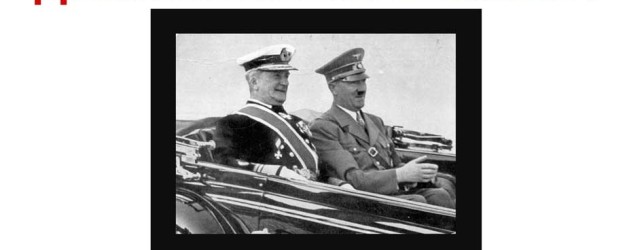The Holocaust Memorial Society will continue to bring attention to a Holocaust perpetrator who did not meet justice for his crimes against the Jewish people in areas under the Hungarian occupation. Moreover, the rehabilitation of Miklos Horthy, Hungarian regent in World War II, is well underway in spite of the fact that he was the first European statesman to extend a hand to Hitler (in the name of “greater Hungary”).
In his quest for ethnically pure greater Hungary, Horthy had to get rid of other ethnic communities in the areas under his occupation. His genocidal and Holocaust actions affected parts of modern Romania, Serbia, Slovakia, Croatia, Slovenia and Ukraine, within the territories Hungary gained from Hitler as award for for entering the Reich’s power block. Three-years occupation of Romanian Transylvania brought deportation of 150,000 Jews to Auschwitz, as well as 15,000 murdered and over 280,000 evicted Romanians. Three-and-a-half years occupation of Backa, a region in north Serbia, was marked by a steady extermination of Serbs, Backa’s ethnic majority, and local Jews who numbered about 16,000. In January 1942, Horthy’s troops tossed over 5,000 Serbs and Jews into frozen Danube in Novi Sad. The surrounding villages were also ethnically cleansed of the Jews and numerous Serbs.
In March 1944, Horthy agreed with Hitler to place 100,000 to 300,000 Jews in Hungary proper at disposal for “war production” in Germany. In April of the same year, the remaining Jewish population in northern Serbia was deported to Nazi death camps.
To this day, there has been no international document condemning Horthy for the acts of Genocide and Holocaust. The book “Genocide Revealed” (www.genociderevealed) is an indictment against both Horthy and indifference to his crimes that never met justice. As this Holocaust and Genocide perpetrator has never been internationally condemned, his current supporters in Europe have a legal ground to fully rehabilitate him.







